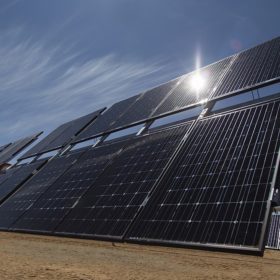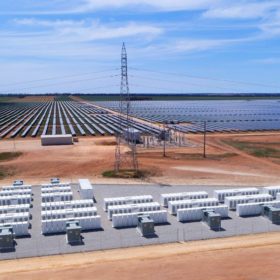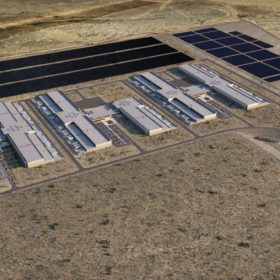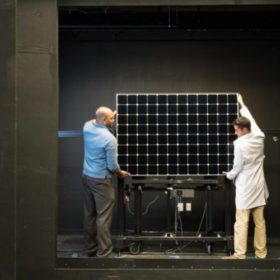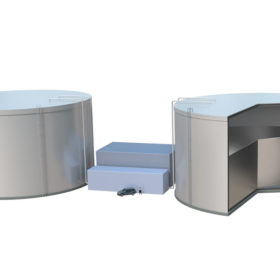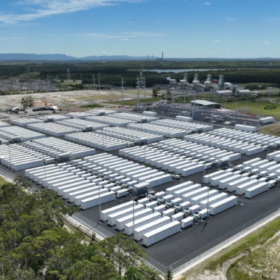Tesla dives deeper into energy storage, as solar slumps
Elon Musk’s company is seeing tremendous success with its EVs and global manufacturing, and dramatically scaling its energy storage deployment, but the Solar Roof is still not being widely deployed.
Long read: Bifacial testing sites multiply
Bifacial solar panel performance has become such a hot pursuit this year that there are now at least four competing field test sites ramping up in the United States, each matching a different set of trackers and panels. The four test projects include DNV GL, Soltec, NREL and Sandia, and initial data is expected by late 2019, once a year’s data has been collected.
OK Google, what is SolarEdge’s energy vision?
SolarEdge has recently purchased an Italian EV system manufacturer, a South Korean battery maker, an Israeli UPS producer, internally developed a virtual power plant grid service, and now they’re working with Google to integrate energy management tools into Google Assistant.
NREL publishes U.S. large scale solar plus lithium ion storage cost study
NREL has released an report which, for the first time, highlights utility scale energy storage costs with various methods of tying it to solar power: co-located or not, and DC- vs AC-coupled.
Corporate solar procurement knocks it out of the park in 2018
According to Rocky Mountain Institute corporations have signed contracts for 2.8 GW of solar in the United States this year, a gigawatt more than the deals signed in all previous years combined.
First Solar sees a doubling coming in 2019
The U.S. module maker projects 5.4 to 5.6 GW of solar module shipments next year, more than double its current projected 2018 volumes of 2.6 to 2.7 GW.
Solar module lifetime predictions are getting better
NREL has proposed a new methodology for determining solar module degradation rates, taking into account measurement challenges such as sensor drift, inverter nuances, soiling and others – keeping the focus on the solar modules themselves.
Molten silicon storage enough to power city, says MIT
The system turns light of white-glowing molten silicon into electricity using specialized PV cells. The researchers claim that the concept could store electricity at around half the costs of pumped hydro. A single system comprising two ten meter tanks could power 100,000 households.
Final hurdle cleared in California’s solar mandate for new homes
The California Building Standards Commission has approved the requirement that new homes integrate rooftop solar. This is expected to not only give a major boost to the state’s solar market, but to drive down costs.
US scientists unveil 15% efficient solar window
A University of Michigan team hopes to offer a 15% efficient solar window product, which allows 50% of the light through. It has received US$1.3 million from the Department of Energy’s Solar Energy Technologies Office to develop the idea further.

